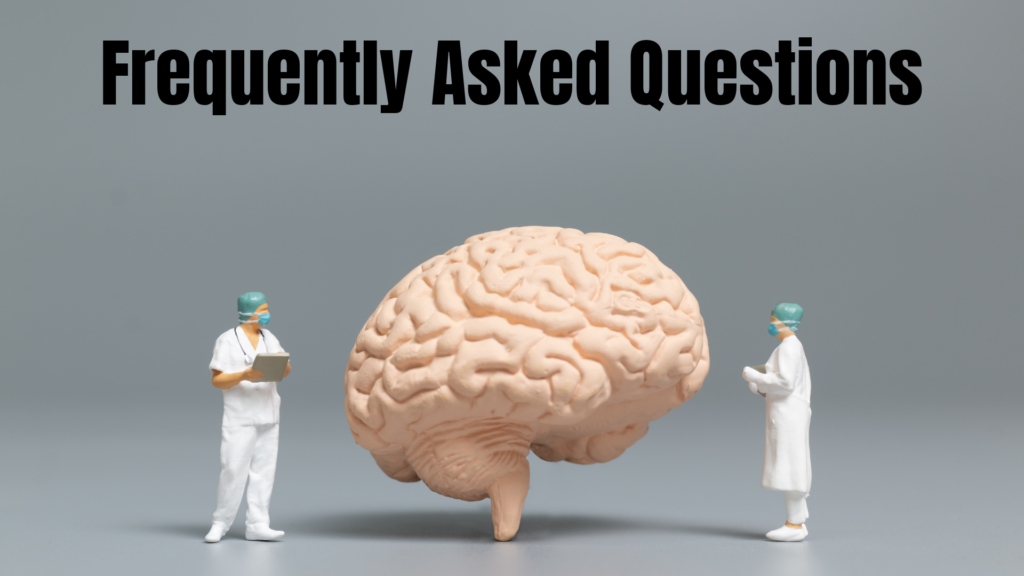Mental health is a critical aspect of overall well-being that affects individuals of all genders. However, there is a growing recognition of the unique challenges faced by men in maintaining good mental health. In this blog post, we will delve into the importance of mental health for men and explore various aspects related to this topic. From understanding the societal stigma surrounding men’s mental health to providing practical strategies for improving well-being, this comprehensive guide aims to shed light on the significance of prioritizing mental health among men.
Table of Contents:
- The Significance of Men’s Mental Health
- Common Mental Health Issues in Men
- Breaking the Stigma: Men’s Mental Health Awareness
- Strategies for Promoting Men’s Mental Wellness
- Seeking Help: Mental Health Resources for Men
- Conclusion
- FAQ’s
The Significance of Men’s Mental Health
While mental health is a vital aspect of well-being for individuals of all genders, it is crucial to recognize the specific significance it holds for men. Traditionally, discussions surrounding mental health have often focused on women, leading to a lack of attention given to the unique challenges faced by men. However, it is increasingly evident that men too experience mental health issues and require support and understanding. By understanding the importance of men’s mental health, we can foster a more inclusive and supportive society that prioritizes the well-being of all individuals. In this section, we will explore the specific reasons why men’s mental health matters and how it impacts their lives and those around them.
Men’s Mental Health and Societal Expectations
Men are often expected to conform to societal norms and stereotypes that promote stoicism, strength, and independence. These expectations can create immense pressure and contribute to the reluctance of men in seeking help for their mental health concerns. The societal notion that men should be strong and emotionally resilient can result in a suppression of emotions, leading to difficulties in expressing and addressing mental health issues. Understanding the significance of men’s mental health involves recognizing the impact of these societal expectations and working towards creating an environment where men feel safe and supported in seeking help when needed.
The Toll of Untreated Mental Health Issues on Men’s Lives
Ignoring or downplaying mental health concerns can have severe consequences for men. Untreated mental health issues can significantly impact various aspects of their lives, including relationships, work performance, and overall quality of life. Depression, anxiety, and other mental health disorders can affect men’s ability to function optimally, leading to a decline in productivity and overall well-being. Recognizing the significance of men’s mental health involves acknowledging the potential negative repercussions of untreated mental health issues and the importance of early intervention and support.
Suicide Rates and Men’s Mental Health
One of the starkest indicators of the significance of men’s mental health is the disproportionately high suicide rate among men. In many countries, suicide rates are higher among men compared to women. Factors such as societal pressures, lack of emotional support networks, and the stigma surrounding mental health can contribute to this alarming trend. Understanding the importance of men’s mental health requires addressing the underlying issues that contribute to suicidal ideation and promoting effective suicide prevention strategies.
By acknowledging the significance of men’s mental health, we can create a more inclusive and compassionate society that supports the well-being of all individuals. In the following sections, we will delve deeper into common mental health issues faced by men, strategies to break the stigma surrounding men’s mental health, practical approaches to promoting men’s mental wellness, and available resources for seeking help. Together, let’s work towards a future where men’s mental health is prioritized and supported, leading to healthier and happier lives for individuals of all genders.

Common Mental Health Issues in Men
Men face a unique set of challenges when it comes to mental health, and understanding the common issues they encounter is crucial in providing appropriate support and interventions. While mental health issues can affect individuals of any gender, there are certain conditions that tend to be more prevalent among men. In this section, we will explore some of the common mental health issues that men often grapple with, shedding light on their symptoms, causes, and potential impact on overall well-being. By gaining insight into these challenges, we can promote awareness, reduce stigma, and foster a greater understanding of men’s mental health.
Depression
Depression is a prevalent mental health issue that affects millions of men worldwide. However, it often goes undiagnosed or untreated due to societal expectations surrounding masculinity. Men may hesitate to seek help or express their emotions, leading to the underreporting of depressive symptoms. Instead of openly discussing their feelings, men may exhibit symptoms such as irritability, anger, or self-destructive behaviors. It is important to recognize the signs of depression in men, which may include persistent sadness, loss of interest in activities, changes in sleep and appetite, fatigue, and difficulty concentrating. By acknowledging the prevalence of depression in men and encouraging open conversations, we can break down barriers and ensure that men receive the support they need.
Anxiety Disorders
Anxiety disorders encompass a range of conditions, including generalized anxiety disorder, social anxiety disorder, and panic disorder, among others. Men can experience these disorders, yet they may be less likely to seek professional help. Society’s expectation for men to appear strong and in control can make it challenging for them to admit to feelings of anxiety or seek assistance. Instead, they may try to manage their anxiety independently, which can lead to increased distress and impairment in daily functioning. Symptoms of anxiety disorders in men may include excessive worry, restlessness, irritability, muscle tension, and difficulty sleeping. By raising awareness about anxiety disorders and providing a supportive environment, we can help men overcome the barriers that prevent them from seeking treatment.
Substance Abuse and Addiction
Substance abuse and addiction are prevalent issues that can have a profound impact on men’s mental health. Men are often more likely to engage in high-risk behaviors, including substance abuse, as a means of coping with stress, trauma, or underlying mental health issues. Substance abuse can worsen existing mental health conditions and lead to a vicious cycle of dependence and further deterioration of mental well-being. Recognizing the link between substance abuse and mental health is crucial in developing comprehensive treatment approaches that address both issues simultaneously. By promoting education, prevention, and access to addiction recovery resources, we can support men in overcoming substance abuse and improving their mental health.
Post-Traumatic Stress Disorder (PTSD)
Post-Traumatic Stress Disorder (PTSD) can affect anyone who has experienced or witnessed a traumatic event, including men. Men may encounter traumatic experiences such as military combat, accidents, or violence, which can significantly impact their mental health. Symptoms of PTSD may manifest differently in men compared to women, with men being more prone to exhibiting anger, aggression, and risk-taking behaviors. It is essential to raise awareness about PTSD in men and provide specialized support and treatment options that address their unique needs. By offering trauma-informed care and resources, we can help men recover from PTSD and restore their mental well-being.
Understanding the common mental health issues that men face is the first step towards promoting their well-being. By creating safe spaces for open dialogue, challenging societal expectations, and providing accessible mental health resources, we can support men in their journey towards mental wellness. In the next section, we will explore the importance of breaking the stigma surrounding men’s mental health and raising awareness about this crucial topic.

Breaking the Stigma: Men’s Mental Health Awareness
The stigma surrounding mental health is a pervasive barrier that prevents many individuals, including men, from seeking the help and support they need. For far too long, societal norms and gender stereotypes have perpetuated the notion that men should be strong, resilient, and unaffected by emotional struggles. As a result, men often face unique challenges when it comes to addressing their mental health concerns. Breaking the stigma surrounding men’s mental health is essential to create an environment where men feel comfortable and empowered to seek help, openly discuss their emotions, and prioritize their well-being. In this section, we will explore the importance of raising awareness about men’s mental health, challenging stereotypes, and promoting a more inclusive and compassionate society that supports the mental well-being of men.
The Impact of Stigma on Men’s Mental Health
The stigma surrounding mental health can have detrimental effects on men’s well-being. The pressure to conform to traditional masculine ideals of strength and stoicism often discourages men from acknowledging and seeking help for their mental health issues. Men may fear being perceived as weak or vulnerable if they express their emotions or reach out for support. This fear of judgment can lead to a reluctance to seek professional help, resulting in delayed or inadequate treatment for mental health conditions. The stigma surrounding men’s mental health creates a culture of silence that perpetuates suffering and hinders the recovery process. It is crucial to understand the impact of stigma on men’s mental health and actively work towards breaking down these barriers.
Challenging Gender Stereotypes and Expectations
Addressing the stigma surrounding men’s mental health requires challenging long-standing gender stereotypes and expectations. Society often imposes rigid expectations on men, dictating that they should be self-reliant, strong, and unemotional. However, these narrow ideals limit the range of emotions men are allowed to express and discourage open discussions about their mental well-being. By promoting a more nuanced understanding of masculinity, we can create space for men to embrace their vulnerability, express their emotions, and seek help when needed. Challenging gender stereotypes involves encouraging empathy, compassion, and understanding, and recognizing that emotional well-being is essential for everyone, regardless of gender.
Promoting Open Dialogue and Education
Raising awareness about men’s mental health is crucial in breaking the stigma and encouraging open dialogue. Education plays a vital role in dispelling misconceptions and providing accurate information about mental health conditions that affect men. By fostering conversations in various settings, such as schools, workplaces, and community organizations, we can normalize discussions about men’s mental health. Providing platforms for men to share their experiences and challenges can help reduce feelings of isolation and empower others to seek help. Additionally, promoting mental health literacy among men and their support networks equips them with the knowledge and resources necessary to identify symptoms, access appropriate care, and support one another effectively.
Role Models and Personal Stories
Role models and personal stories have the power to inspire and create meaningful change. Sharing stories of men who have overcome mental health challenges or have sought help encourages others to do the same. These narratives help break the illusion of invulnerability and show that seeking support is a sign of strength rather than weakness. By highlighting positive examples and celebrating the resilience of men who have prioritized their mental health, we can challenge the stigma and inspire others to take action.
Creating Supportive Environments
Building supportive environments is essential in breaking the stigma surrounding men’s mental health. This involves fostering workplaces, schools, and communities that prioritize mental well-being and provide resources for support. Employers can implement mental health programs and policies that promote work-life balance, reduce stress, and encourage open conversations. Educational institutions can integrate mental health education into their curriculum and establish support networks for students. Community organizations can organize events and initiatives that raise awareness and provide accessible mental health resources for men. By collectively working towards creating safe and inclusive spaces, we can create a society where men feel supported and empowered to prioritize their mental health.
Breaking the stigma surrounding men’s mental health requires a collective effort. By challenging stereotypes, promoting open dialogue, sharing personal stories, and creating supportive environments, we can foster a culture that values and prioritizes the mental well-being of men. It is time to acknowledge that seeking help is a courageous act and that men deserve the same compassion and support as anyone else. Together, we can break down the barriers and create a future where men can openly address their mental health concerns without fear or judgment.

Strategies for Promoting Men’s Mental Wellness
Promoting men’s mental wellness is essential for cultivating a society where men can thrive and enjoy optimal well-being. It requires a proactive and holistic approach that addresses the unique challenges men face and empowers them to prioritize their mental health. In this section, we will explore effective strategies for promoting men’s mental wellness, focusing on practical steps individuals, communities, and institutions can take to support men in their journey toward emotional well-being. By implementing these strategies, we can create a positive and nurturing environment that fosters resilience, self-care, and mental wellness among men.
Encouraging Emotional Expression and Communication
One of the key strategies for promoting men’s mental wellness is to create an environment that encourages emotional expression and open communication. Breaking free from societal expectations that men should always appear strong and unemotional allows them to acknowledge and express their emotions more freely. Encouraging men to engage in meaningful conversations about their thoughts, feelings, and challenges can help build emotional resilience and foster healthier coping mechanisms. By creating safe spaces where men feel comfortable discussing their experiences and seeking support, we can normalize emotional expression and reduce the burden of internalized emotions.
Redefining Masculinity and Challenging Gender Norms
Redefining masculinity is a powerful strategy in promoting men’s mental wellness. By challenging traditional gender norms that limit emotional range, we can create a more inclusive and accepting definition of masculinity. Encouraging men to embrace their vulnerability, express their emotions authentically, and engage in self-reflection allows for personal growth and increased self-awareness. By celebrating diverse expressions of masculinity, we can create a culture where men feel empowered to prioritize their mental well-being and seek help when needed.
Providing Education and Mental Health Literacy
Education plays a pivotal role in promoting men’s mental wellness. Providing comprehensive mental health literacy equips men with the knowledge and tools to recognize the signs of mental health issues, understand available resources, and practice self-care strategies. Educational institutions, workplaces, and community organizations can offer workshops, seminars, and awareness campaigns that focus on men’s mental health. By increasing awareness and knowledge, we can empower men to take proactive steps toward their mental wellness and reduce the stigma associated with seeking help.
Fostering Supportive Networks and Communities
Building supportive networks and communities is crucial for promoting men’s mental wellness. Establishing peer support groups or men’s wellness programs provides spaces for men to connect, share experiences, and support each other. These networks create a sense of belonging and facilitate open conversations about mental health. In addition, involving family members, friends, and partners in discussions about men’s mental wellness helps create a support system that recognizes and values emotional well-being.
Encouraging Self-Care and Stress Management
Promoting self-care and stress management techniques is essential in supporting men’s mental wellness. Encouraging men to prioritize self-care activities such as exercise, hobbies, relaxation techniques, and mindfulness practices fosters emotional well-being and resilience. Educating men about the importance of maintaining a healthy work-life balance and setting boundaries helps prevent burnout and supports overall mental wellness. By incorporating self-care practices into daily routines, men can enhance their emotional well-being and build resilience to navigate life’s challenges.
Promoting men’s mental wellness requires a collective effort that addresses societal norms, encourages open dialogue, and provides resources and support. By implementing these strategies, we can create a culture that values men’s mental health and supports their journey toward well-being. Let us strive towards a society where men feel empowered to prioritize their mental wellness, seek help when needed, and flourish in all aspects of their lives.

Seeking Help: Mental Health Resources for Men
When it comes to prioritizing mental health, seeking help is a crucial step for men to take. However, navigating the vast array of available mental health resources can be overwhelming. That’s why it’s important to be aware of the various support systems and services specifically tailored to meet the needs of men. In this section, we will explore a range of mental health resources that can provide guidance, support, and professional assistance to men seeking help for their mental well-being. By understanding and utilizing these resources, men can take proactive steps toward improving their mental health and overall quality of life.
Mental Health Helplines and Hotlines
Mental health helplines and hotlines are valuable resources that offer immediate support to men in need. These services are staffed by trained professionals who can provide guidance, information, and a listening ear. Helplines are often available 24/7, ensuring that men have access to support whenever they need it. Whether someone is experiencing a crisis, feeling overwhelmed, or simply needs someone to talk to, helplines can offer a safe and confidential space to express their thoughts and emotions. National helplines, such as the National Suicide Prevention Lifeline, provide assistance specific to mental health concerns and can connect men with local resources for ongoing support.
Mental Health Websites and Online Communities
The internet has become a valuable platform for accessing mental health information and connecting with others facing similar challenges. Numerous websites and online communities cater to men’s mental health, offering a wealth of resources, articles, forums, and support networks. These platforms provide a space for men to learn about mental health conditions, discover coping strategies, and engage in discussions with peers who understand their experiences. Websites like HeadsUpGuys and Man Therapy provide valuable resources and tools specifically tailored for men, addressing topics such as depression, anxiety, and suicide prevention.
Mental Health Professionals and Therapists
Seeking the assistance of mental health professionals, such as psychologists, psychiatrists, and therapists, can be immensely beneficial for men’s mental well-being. These professionals are trained to provide specialized care and support for a range of mental health concerns. Whether through individual therapy, group therapy, or couples counseling, mental health professionals can help men explore their emotions, develop coping skills, and navigate life’s challenges. The process of finding the right therapist may involve reaching out to local mental health clinics, utilizing online directories, or seeking recommendations from trusted sources. Taking the step to seek professional help demonstrates strength and commitment to one’s mental well-being.
Men’s Support Groups and Programs
Joining men’s support groups and programs can provide a sense of camaraderie and understanding. These groups offer a safe and supportive environment where men can share their experiences, learn from one another, and receive guidance from trained facilitators. Support groups can be specific to certain mental health conditions, such as depression or addiction, or focus on broader topics related to men’s mental well-being. Participating in such groups allows men to build connections, gain insights, and realize they are not alone in their struggles. Local community centers, mental health organizations, and online platforms often offer information on available support groups.
Workplace Mental Health Programs
Many workplaces are recognizing the importance of supporting employees’ mental health, including men. Workplace mental health programs and initiatives aim to create a culture of well-being by providing resources, awareness campaigns, and access to mental health services. Employee assistance programs (EAPs) often offer confidential counseling services, referrals to mental health professionals, and resources for stress management and work-life balance. Employers can also implement mental health training programs to educate employees and reduce stigma surrounding mental health in the workplace. Taking advantage of workplace mental health programs can be a valuable step in prioritizing mental wellness.
By utilizing these mental health resources, men can find the support they need to navigate their mental health journey. It’s important to remember that seeking help is a sign of strength and resilience. Whether it’s reaching out to helplines, connecting with online communities, seeking professional therapy, joining support groups, or utilizing workplace programs, there are resources available to empower men to prioritize their mental well-being. Together, these resources contribute to creating a society where men’s mental health is valued, supported, and nurtured.
Conclusion
In conclusion, recognizing and prioritizing mental health is of utmost importance for men’s overall well-being. Men face unique challenges and societal pressures that can often hinder their ability to openly address their mental health concerns. However, by understanding the significance of mental health and breaking the stigma surrounding it, we can create a supportive and inclusive environment where men feel empowered to seek help and take care of their emotional well-being.
Throughout this blog post, we have delved into various aspects of men’s mental health. We have explored the societal expectations and gender norms that can contribute to the reluctance of men to prioritize their mental well-being. We have also discussed the common mental health issues that men may experience, including depression, anxiety, and substance abuse, and how these issues can manifest differently in men compared to women.
Moreover, we have highlighted the importance of raising awareness and promoting mental health literacy to ensure that men have access to the necessary knowledge and resources. By challenging traditional notions of masculinity and creating safe spaces for open dialogue, we can encourage men to express their emotions, seek support, and engage in self-care practices. It is crucial for individuals, communities, and institutions to work together to foster a culture that values men’s mental health and provides the necessary support systems.
In addition, we have explored strategies for promoting men’s mental wellness, emphasizing the significance of encouraging emotional expression, challenging gender norms, providing education, fostering supportive networks, and promoting self-care and stress management techniques. By implementing these strategies, we can create an environment that nurtures men’s mental well-being and enables them to lead fulfilling lives.
Furthermore, we have discussed the importance of seeking help and have highlighted various mental health resources available for men. From helplines and online communities to mental health professionals and support groups, these resources play a vital role in offering guidance, support, and professional assistance to men in need. By utilizing these resources, men can take proactive steps toward improving their mental health and overall quality of life.
It is essential to emphasize that seeking help is not a sign of weakness but rather an act of courage and self-care. Men, like anyone else, deserve access to the support and resources necessary to address their mental health concerns. By fostering a society that recognizes and values men’s mental health, we can create a future where men can thrive, lead fulfilling lives, and contribute to the well-being of society as a whole.
In conclusion, understanding the importance of mental health for men is crucial for building a healthier and more compassionate society. By breaking the stigma, promoting awareness, providing resources, and fostering supportive environments, we can empower men to prioritize their mental well-being and lead lives that are not only physically healthy but also emotionally fulfilling. Let us work together to create a world where every man feels seen, heard, and supported on their journey toward mental wellness.

Frequently Asked Questions (FAQs)
Why is mental health important for men?
Mental health is important for men because it affects every aspect of their lives, including their relationships, work performance, and overall well-being. Prioritizing mental health allows men to better cope with stress, build resilience, and lead fulfilling lives.
What are some common mental health issues that men face?
Men can experience a range of mental health issues, including depression, anxiety, substance abuse, and suicidal thoughts. These issues may manifest differently in men compared to women, making it crucial to address them with gender-specific approaches.
How can societal expectations and gender norms impact men’s mental health?
Societal expectations and gender norms can place immense pressure on men to conform to traditional masculine ideals, which often discourage emotional expression and seeking help. This can contribute to feelings of isolation, stress, and reluctance to address mental health concerns.
What strategies can be used to promote men’s mental wellness?
Strategies for promoting men’s mental wellness include encouraging emotional expression and communication, challenging gender norms, providing education and mental health literacy, fostering supportive networks and communities, and promoting self-care and stress management techniques.
How can I support a man who is struggling with his mental health?
Supporting a man who is struggling with his mental health involves active listening, offering non-judgmental support, and encouraging him to seek professional help. It is essential to create a safe space where he feels comfortable opening up about his emotions and experiences.
What resources are available for men seeking mental health support?
There are various mental health resources available for men, including mental health helplines and hotlines, online communities, mental health professionals and therapists, men’s support groups and programs, and workplace mental health initiatives.
Is seeking help for mental health a sign of weakness?
Seeking help for mental health is not a sign of weakness but rather an act of strength and self-care. It takes courage to recognize the need for support and take steps towards improving one’s well-being.
How can we break the stigma surrounding men’s mental health?
Breaking the stigma surrounding men’s mental health involves challenging societal expectations, promoting open conversations about mental health, providing education and awareness, and highlighting positive male role models who prioritize their mental well-being.
Can men participate in therapy and counseling?
Absolutely. Therapy and counseling are beneficial for men and provide a safe and confidential space to explore their emotions, develop coping strategies, and address mental health concerns. Mental health professionals are trained to support individuals regardless of their gender.
How can I incorporate self-care into my daily routine as a man?
Incorporating self-care into your daily routine as a man involves finding activities that bring you joy and relaxation, setting boundaries to prioritize your well-being, practicing mindfulness or meditation, engaging in physical exercise, and seeking moments of solitude to recharge.
Remember, seeking professional advice or consulting a mental health expert is recommended for personalized guidance and support.






